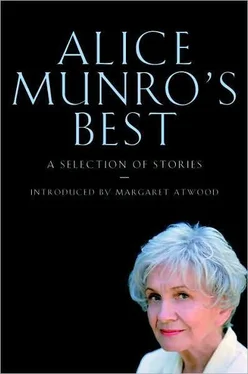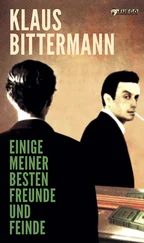She told Dr. Henshawe that she was not seeing Patrick while she studied for her exams. Rose could see that even that pleased her.
She told no one that her situation had changed. It was not just Dr. Henshawe she didn’t want knowing. She didn’t like giving up being envied; the experience was so new to her.
She tried to think what to do next. She could not stay on at Dr. Henshawe’s. It seemed clear that if she escaped from Patrick, she must escape from Dr. Henshawe too. And she did not want to stay on at the college, with people knowing about her broken engagement, with the girls who now congratulated her saying they had known all along it was a fluke, her getting Patrick. She would have to get a job.
The Head Librarian had offered her a job for the summer but that was perhaps at Dr. Henshawe’s suggestion. Once she moved out, the offer might not hold. She knew that instead of studying for her exams she ought to be downtown, applying for work as a filing clerk at the insurance offices, applying at Bell Telephone, at the department stores. The idea frightened her. She kept on studying. That was the one thing she really knew how to do. She was a scholarship student after all.
On Saturday afternoon, when she was working at the library, she saw Patrick. She did not see him by accident. She went down to the bottom floor, trying not to make noise on the spiralling metal staircase. There was a place in the stacks where she could stand, almost in darkness, and see into his carrel. She did that. She couldn’t see his face. She saw his long pink neck and the old plaid shirt he wore on Saturdays. His long neck. His bony shoulders. She was no longer irritated by him, no longer frightened by him; she was free. She could look at him as she would look at anybody. She could appreciate him. He had behaved well. He had not tried to rouse her pity, he had not bullied her, he had not molested her with pitiful telephone calls and letters. He had not come and sat on Dr. Henshawe’s doorstep. He was an honorable person, and he would never know how she acknowledged that, how she was grateful for it. The things she had said to him made her ashamed now. And they were not even true. Not all of them. He did know how to make love. She was so moved, made so gentle and wistful, by the sight of him, that she wanted to give him something, some surprising bounty, she wished to undo his unhappiness.
Then she had a compelling picture of herself. She was running softly into Patrick’s carrel, she was throwing her arms around him from behind, she was giving everything back to him. Would he take it from her, would he still want it? She saw them laughing and crying, explaining, forgiving. I love you. I do love you, it’s all right, I was terrible, I didn’t mean it, I was just crazy, I love you, it’s all right. This was a violent temptation for her; it was barely resistible. She had an impulse to hurl herself. Whether it was off a cliff or into a warm bed of welcoming grass and flowers, she really could not tell.
It was not resistible, after all. She did it.
* * *
WHEN ROSE AFTERWARD reviewed and talked about this moment in her life — for she went through a period, like most people nowadays, of talking freely about her most private decisions, to friends and lovers and party acquaintances whom she might never see again, while they did the same — she said that comradely compassion had overcome her, she was not proof against the sight of a bare bent neck. Then she went further into it, and said greed, greed. She said she had run to him and clung to him and overcome his suspicions and kissed and cried and reinstated herself simply because she did not know how to do with out his love and his promise to look after her; she was frightened of the world and she had not been able to think up any other plan for herself. When she was seeing life in economic terms, or was with people who did, she said that only middle-class people had choices anyway, that if she had had the price of a train ticket to Toronto her life would have been different.
Nonsense, she might say later, never mind that, it was really vanity, it was vanity pure and simple, to resurrect him, to bring him back his happiness. To see if she could do that. She could not resist such a test of power. She explained then that she had paid for it. She said that she and Patrick had been married ten years, and that during that time the scenes of the first breakup and reconciliation had been periodically repeated, with her saying again all the things she had said the first time, and the things she had held back, and many other things which occurred to her. She hopes she did not tell people (but thinks she did) that she used to beat her head against the bedpost, that she smashed a gravy boat through a dining-room window; that she was so frightened, so sickened by what she had done that she lay in bed, shivering, and begged and begged for his forgiveness. Which he granted. Sometimes she flew at him; sometimes he beat her. The next morning they would get up early and make a special breakfast; they would sit eating bacon and eggs and drinking filtered coffee, worn out, bewildered, treating each other with shamefaced kindness.
What do you think triggers the reaction? they would say.
Do you think we ought to take a holiday? A holiday together? Holidays alone?
A waste, a sham, those efforts, as it turned out. But they worked for the moment. Calmed down, they would say that most people probably went through the same things like this, in a marriage, and indeed they seemed to know mostly people who did. They could not separate until enough damage had been done, until nearly mortal damage had been done, to keep them apart. And until Rose could get a job and make her own money, so perhaps there was a very ordinary reason after all.
What she never said to anybody, never confided, was that she sometimes thought it had not been pity or greed or cowardice or vanity but something quite different, like a vision of happiness. In view of everything else she had told she could hardly tell that. It seems very odd; she can’t justify it. She doesn’t mean that they had perfectly ordinary, bearable times in their marriage, long busy stretches of wallpapering and vacationing and meals and shopping and worrying about a child’s illness, but that sometimes, without reason or warning, happiness, the possibility of happiness, would surprise them. Then it was as if they were in different though identical-seeming skins, as if there existed a radiantly kind and innocent Rose and Patrick, hardly ever visible, in the shadow of their usual selves. Perhaps it was that Patrick she saw when she was free of him, invisible to him, looking into his carrel. Perhaps it was. She should have left him there.
SHE KNEW THAT was how she had seen him; she knows it, because it happened again. She was in Toronto Airport, in the middle of the night. This was about nine years after she and Patrick were divorced. She had become fairly well known by this time, her face was familiar to many people in this country. She did a television program on which she interviewed politicians, actors, writers, personalities , and many ordinary people who were angry about something the government or the police or a union had done to them. Sometimes she talked to people who had seen strange sights, UFOs, or sea monsters, or who had unusual accomplishments or collections, or kept up some obsolete custom.
She was alone. No one was meeting her. She had just come in on a delayed flight from Yellowknife. She was tired and bedraggled. She saw Patrick standing with his back to her, at a coffee bar. He wore a raincoat. He was heavier than he had been, but she knew him at once. And she had the same feeling that this was a person she was bound to, that by a certain magical yet possible trick, they could find and trust each other, and that to begin this all that she had to do was go up and touch him on the shoulder, surprise him with his happiness.
Читать дальше












